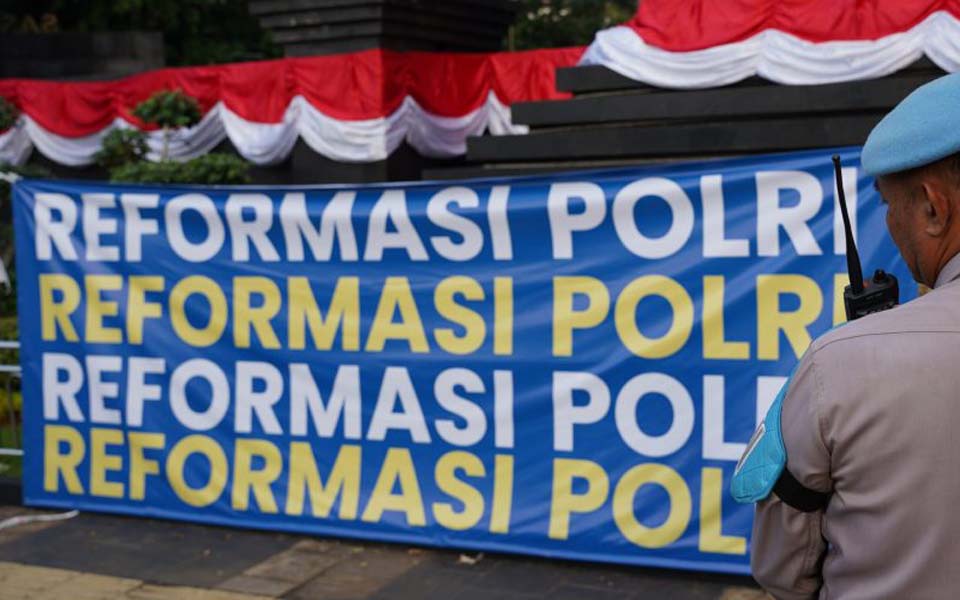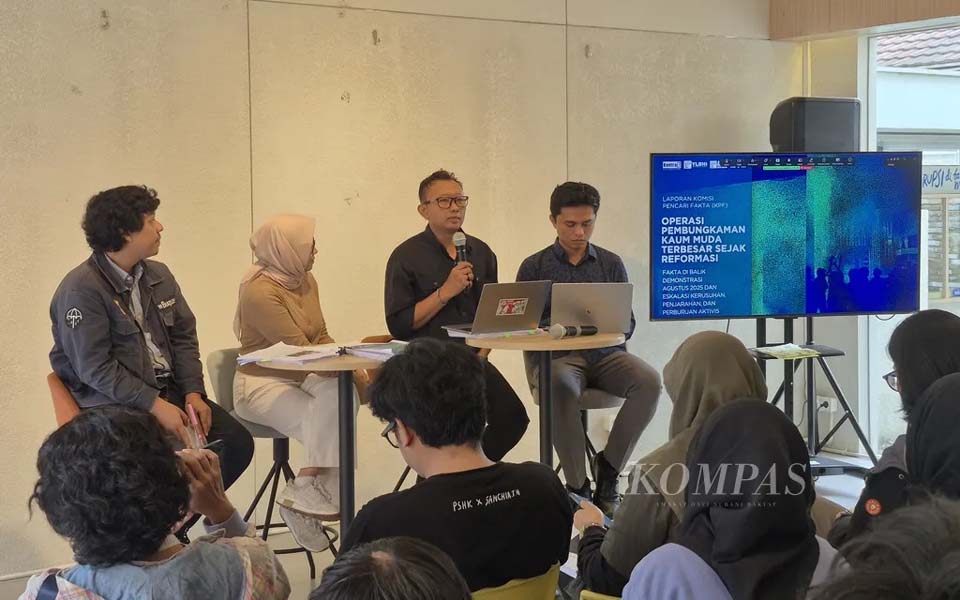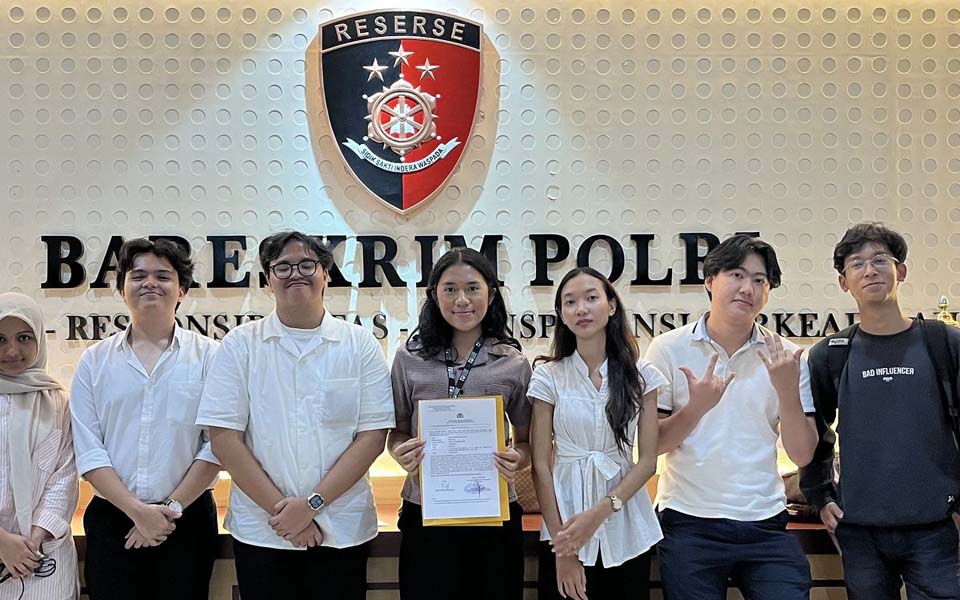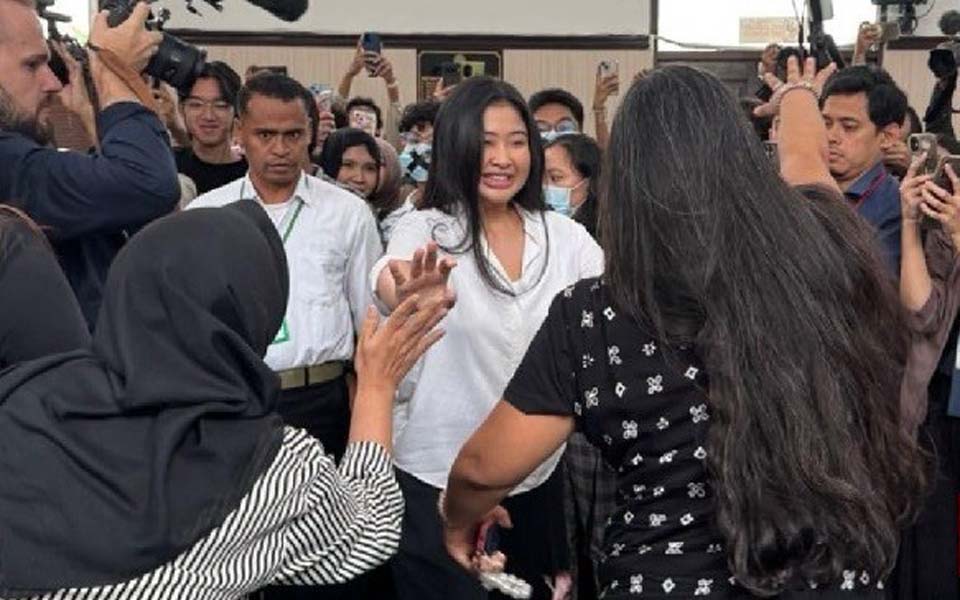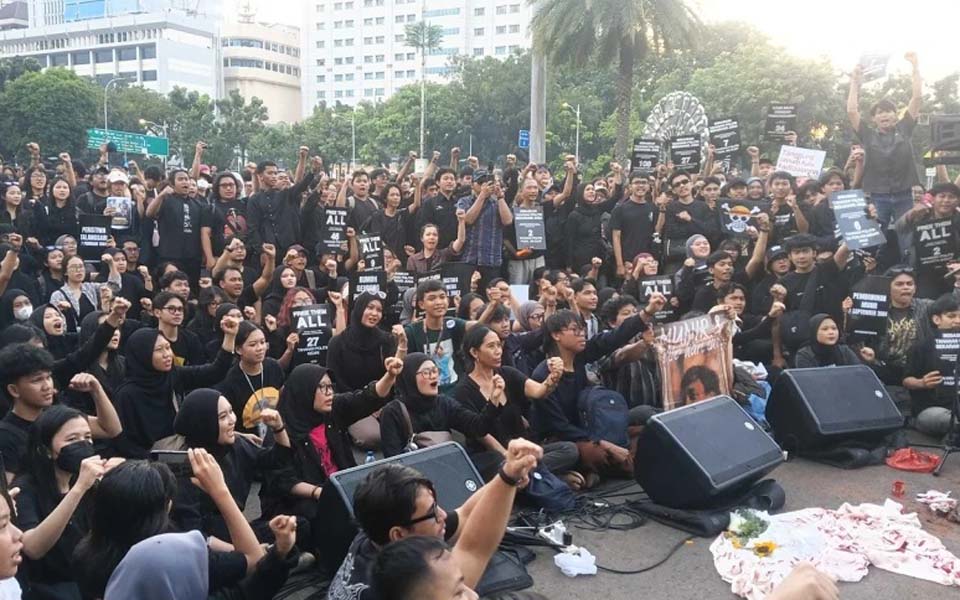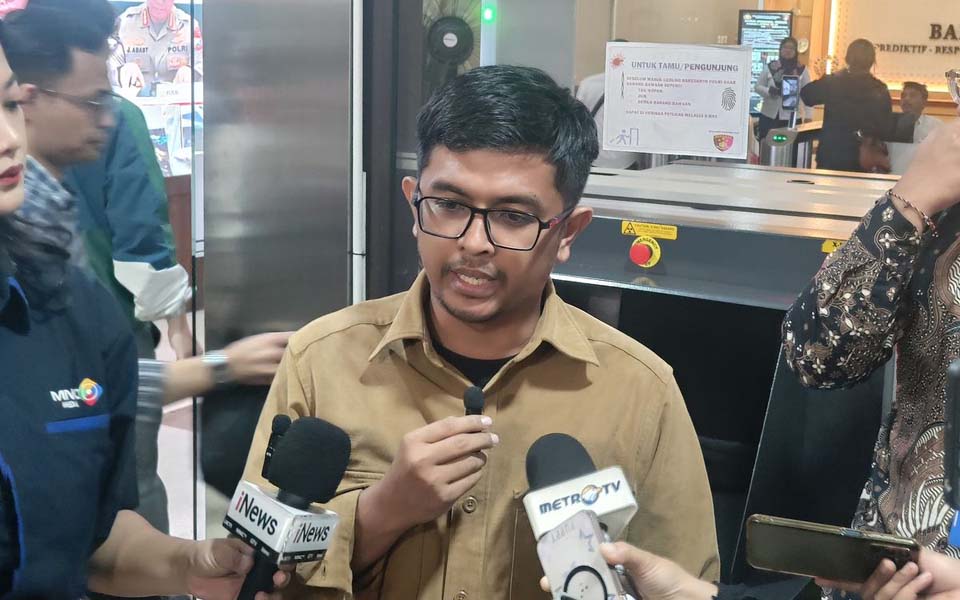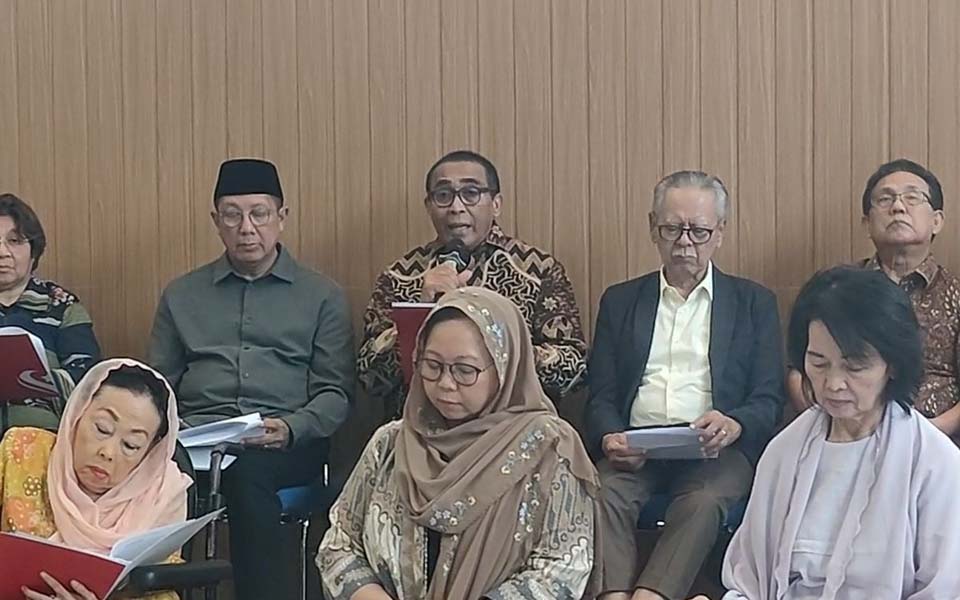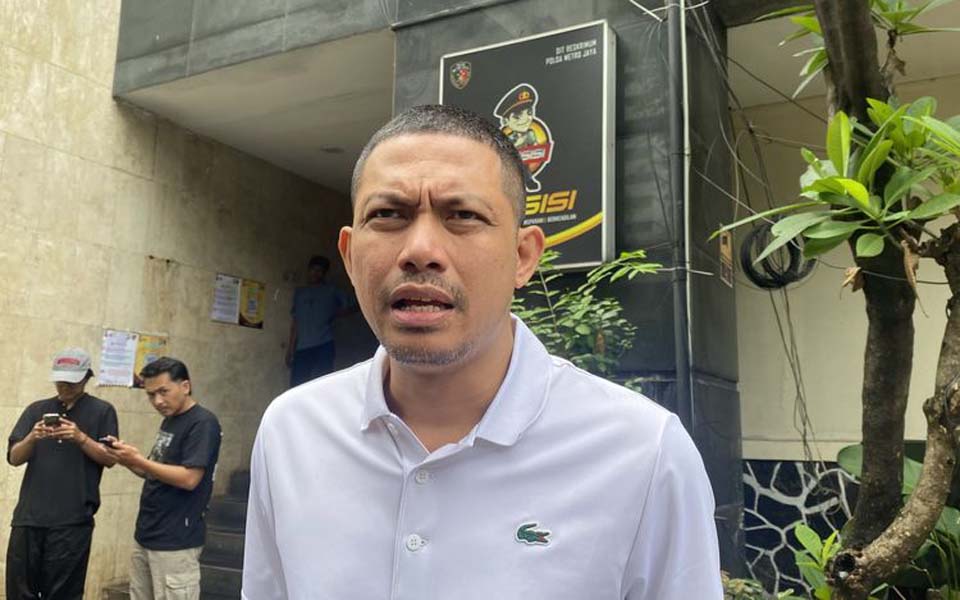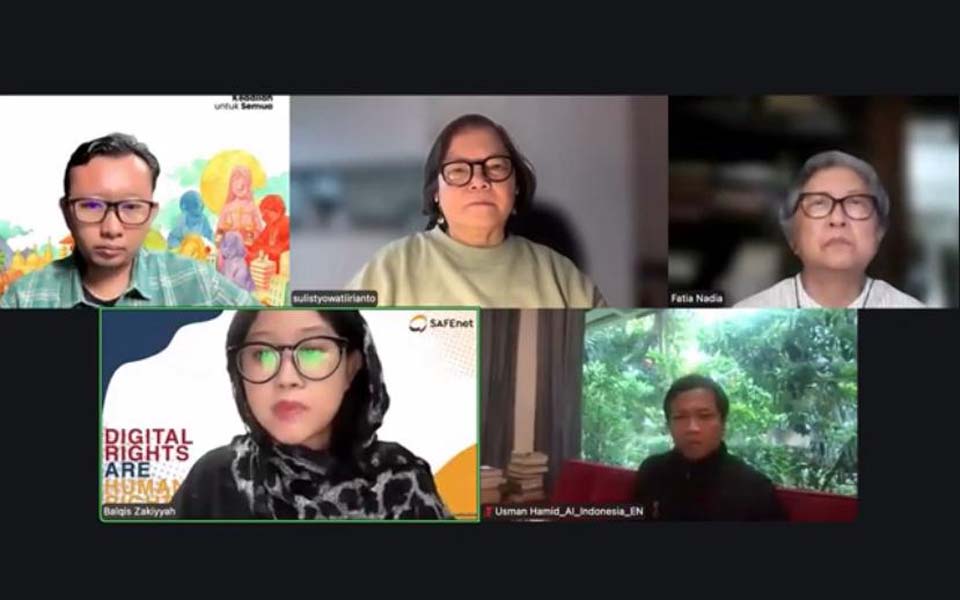Jakarta – The Indonesian Legal Aid Foundation (YLBHI) wishes the Polri (National Police) a happy 79th anniversary and will continue to encourage improvements and reforms to the police of the Republic of Indonesia so that they are professionals who firmly uphold the Constitution as a state institution that fully guarantees the principles of a democratic constitutional state, and guarantees respect, protection and the fulfilment of human rights (the constitutional rights of citizens) without becoming a tool of power and capital.
On its 79th anniversary, the National Police took up the theme "The National Police with the People". The National Police Public Relations Division distributed a public service advertisement using artificial intelligence (AI) depicting a winged police officer helping the community. In the video, the National Police stated that "The police are modern heroes". "Without a robe, without the spotlight, they stand at the forefront, protecting the community from all forms of crime and danger." When compared to everyday reality however, this image is ironic because in fact is that the police along with those in power and owners of capital are often the actors who violate the rights of the ordinary people.
The YLBHI noted that the police are still a tool of repression against the public in the interests of the political elite and owners of capital in launching various investment agendas wrapped in the words "investment" and "development". On Bhayangkara Day 2025, the YLBHI portrayed this by looking at various cases of malicious investigation and efforts at criminalisation that were assisted and handled by 18 Legal Aid Foundation (LBH) offices throughout Indonesia.
Over the period 2019 to May 2025, there were at least 154 cases with 1,097 victims of criminalisation in various sectors. Most of the criminalisation happened to people when they were demonstrating. Starting from defending their living space from land grabbing, criticising national policies to demanding the fulfillment of normative workers' rights. Others were criminalised for criticising government policy using social media channels with the application of several articles that are often used, namely Article 170 of the Criminal Code (KUHP) (31 cases), Article 55 Paragraph (1) of the KUHP, Article 160 of the KUHP, Article 406 paragraph (1) of the KUHP and Article 27 paragraph (3) of the Information and Electronic Transaction (ITE) Law.
These cases of criminalisation were widespread and targeted farmers, students, labourers, academics and journalists. If looked at by categorising cases by issue, the criminalisation of citizens fighting in agrarian conflicts is in first place, namely 61 cases, followed by 41 cases of criminalisation of demonstrations against government policies. The top five cases can be seen in the diagram below.
In these cases of criminalisation, there was at least four patterns that often recur, namely:
1. Violence and torture practices. At the very least there is a pattern of physical and psychological violence that befalls victims of criminalisation. Victims of arrest are beaten first, then in the process of the examination the police often delay the process and conduct examinations when victims are sick and until late at night.
2. Excessive use of force. Violent practices continue to occur because the police often use excessive force that is not proportional or comparable to the situation at hand. A culture of violence and militarism is still strongly embedded in the police as an institution.
3. Obstacles to accessing legal aid. In many cases with legal assistance, the police actually prevent victims of criminalisation from being able to access or choose their own attorney.
4. Illegal urine tests. In mass actions or demonstrations, those arrested are often forced to take urine tests. This is not in accordance with the principle of lex administratum under the Criminal Procedure Code (KUHAP) and the 2009 Narcotics Law.
5. Negative campaigns. To justify criminalisation, the police often use press conferences to spread black campaigns (stigma, discrediting people) against those arrested referring to them as "infiltrators", "anarchists" and "rioters".
The repetition of violent practices and criminalisation is rooted in the police force due to the lack of transparent and accountable law enforcement minus supervision even though the police's authority is so great. This situation is exacerbated by the criminal procedure law (KUHAP) that underlies the police's work which is outdated and still opens loopholes for discretion that are prone to abuse of authority that are not in accordance with the principles of the rule of law and democracy and fail to guarantee the protection of human rights.
At this point, instead of evaluating the internal problems of the institution so that it is accountable by strengthening transparency and supervision, the police today are busy improving their defence equipment as shown in the dress rehearsal for the 79th Bhayangkara anniversary by displaying humanoid robots and hunting dogs. This spending does not answer the police's fundamental problems. In addition to draining public funds, this actually strengthens the militaristic nature of the police which becomes a threat to public freedom.
In relation to the above situation, the YLBHI and its regional LBH office take a stance of:
1. Urging the president and the House of Representatives (DPR) to conduct a comprehensive evaluation of the practice of violence and human rights violations by the police as an institution as well as the deviation of the police's role as a tool for the owners of capital and power;
2. Encourage reforms to the KUHAP to strengthen control over police authority, transparency and accountability and strengthen checks and balances in an integrated criminal law enforcement system;
3. Evaluate Polri's budget acquisition system and the use of police weapons equipment spending;
4. Urge the reform of the system of legal accountability for police members involved in violence and criminalisation in an ethical and criminal manner so that it is impartial and accountable;
5. Conduct a comprehensive evaluation or audit of the institution, its authority and budget management which actually results in the substantive failure of police institutional reform and makes the police a superbody state institution which threatens democracy, the rule of law and human rights;
6. Strengthen the Indonesian police's internal and external oversight mechanisms to encourage professionalism, transparency and accountability;
7. Limit the police's authority and funding, which is so large but has minimal supervision, transparency and accountability, so that the police do not become a corrupt institution and actively abuses their power.
With respect,
YLBHI management
[Translated by James Balowski. The original title of the article was "Kepolisian alat negara bukan alat represi penguasa dan pemodal: Kekerasan dan pelanggaran ham yang terus menjadi pola".]





